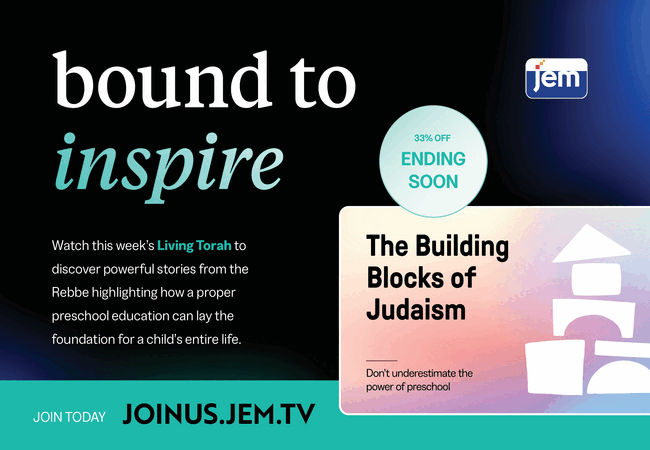CROWN HEIGHTS, Brooklyn [CHI] — In the wake of recent tragedies affecting the tight-knit Chabad-Lubavitch community based in Crown Heights, Brooklyn, a seminar was held Wednesday evening to address the Hassidic response to death and misfortune.
Seminar: the Yiddishe Response to Tragedies
CROWN HEIGHTS, Brooklyn [CHI] — In the wake of recent tragedies affecting the tight-knit Chabad-Lubavitch community based in Crown Heights, Brooklyn, a seminar was held Wednesday evening to address the Hassidic response to death and misfortune.
A panel of respected mentors and educators addressed the following key topics:
• What am I to think when a tragedy occurs in my community?
• How do I explain tragedy to my family?
• What is my personal responsibility?
• What is our communal responsibility?
Love binds Chassidim to one another, reflected Rabbi Yisroel Deren, co-director of Chabad of Western and Southern New England. “We are all one family,” he said to the crowd of 200 men and women gathered in the Bais Rivkah ballroom. “The Lubavitcher Rebbe, Menachem M. Schneerson of righteous memory, derives great enjoyment from seeing his chassidim truly caring for each other.”
One rabbi pointed out the quality of banding together, as the community has, in the face of hardship. “Chassidus says that ’Love your fellow as yourself’ means that we should love another Jew even more than we love ourselves, and truly feel his pain,” asserted Rabbi Bentzion Krasnianski, co-director of Chabad of the Upper East Side. “Yet it is not enough to be inspired,” he continued. “We must take responsibility.”
At the seminar hosted by Yagdil Torah and sponsored by Yerachmiel and Rivka Leah Jacobson, Krasnianski stressed the necessity to set aside time for Torah learning, a repeated dictum of the Rebbe’s. “Increase in something you are not so careful with,” suggested Rabbi Ahron Dovid Gancz, educator at YTTL in Morristown, N.J.
In regard to addressing painful issues with children, Gancz said he believes 90% of troubles to be simply mental hype. He explained that most wounds will heal with time and that there is no need to over-dramatize trauma unless a child calls attention to it on his own.
Every person can take example from Yaakov Avinu’s preparation to meet his brother, Eisav, of gifts, prayer, and mobilizing an army, illuminated Gancz. “We need to strengthen our faith and trust in G-d, we need to do mitzvos and pray to Him to bring Mashiach, and we also need to mobilize our troops.” Knowing how to approach such tragic situations as these is how we combat the trauma, he said.
“We don’t have an answer to tragedy,” Gancz declared, “but who are we to ask? What we can do is demand Mashiach,” he said.














Meir S.
Wow very FEW people, BUT nice event!
oish
were r all the ppl
chani
BS“D
one speaker said: ”so few ppl….B“H they don’t feel the need to come to such an event”
i hope hope hope that that was the reason.
it was a phenomenal event
excellent speakers
giving us the bottom line
thank you so much Yagdil Torah for putting this together.
May we only know of simcha – overflowing simcha from now on.
I was there
the event was very nice! they started very promptly which is something that was very impressive. The speakers were excellent. I feel like more people should have come though. This was a community event and the PR was great. Here is an organization trying to unite ch’s community during traumatic times and people don’t come. That was very disappointing for me…
understand
im trying to understand a well respected organazation makes a program for the whole community to honor our brothers and sisters sons and daughters that weve lost this past year and only 200 people show up ? whats wrong with this community do we have to have more tragedies to wake every body up
Chaim Hershkop
TO: I was there and to understand
I was there as well.
One of the things I picked up was “personal responsibility”,
You do what you have to do. You be the Nachson Ben Aminodov and do the right thing. Forget “the community” (meaning: don’t wait for others to join you).
Do good things and fight the bad ones as well, on your own.
Baroch Hashem there are plenty of good individuals that do good things, lets not forget them, let’s help them.
Don’t walk in front of me,I may not follow.
Don’t walk behind me, I may not lead.
Just walk besides me and be my friend and TOGETHER we will walk in the ways of Hashem.
an admirer
YONIT, beautifully and simply written!
PHOTOGRAPHER, really nice photos, you do great close ups :)
upset
crownheights you should be ashamed of you’re selfs the place is empty!!!!!!!!!!!!!!!!!!!!!!!!!!!!
happy mushky
my parents sponcered it and it was nice